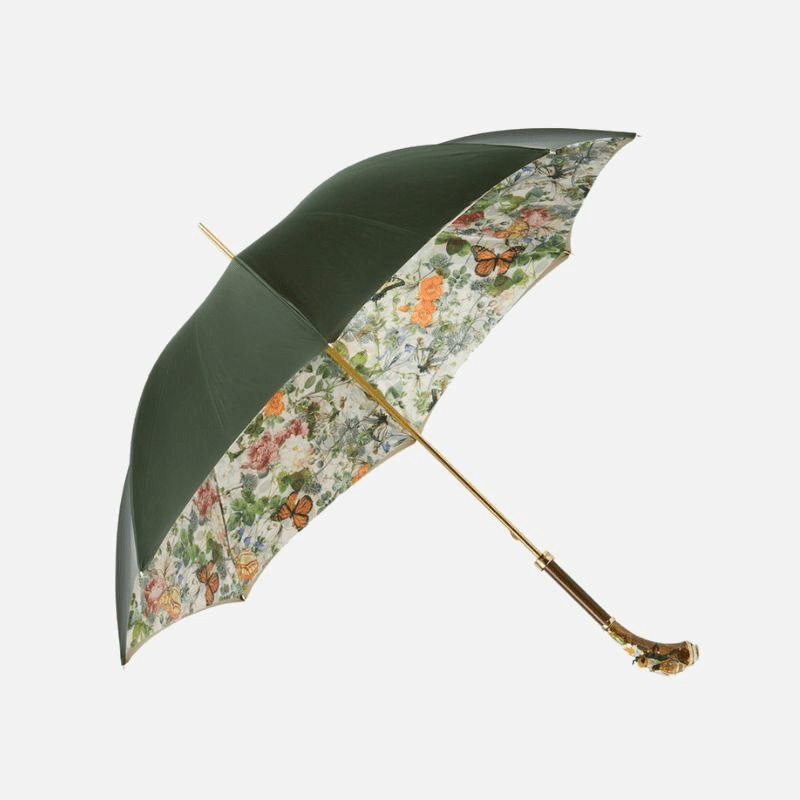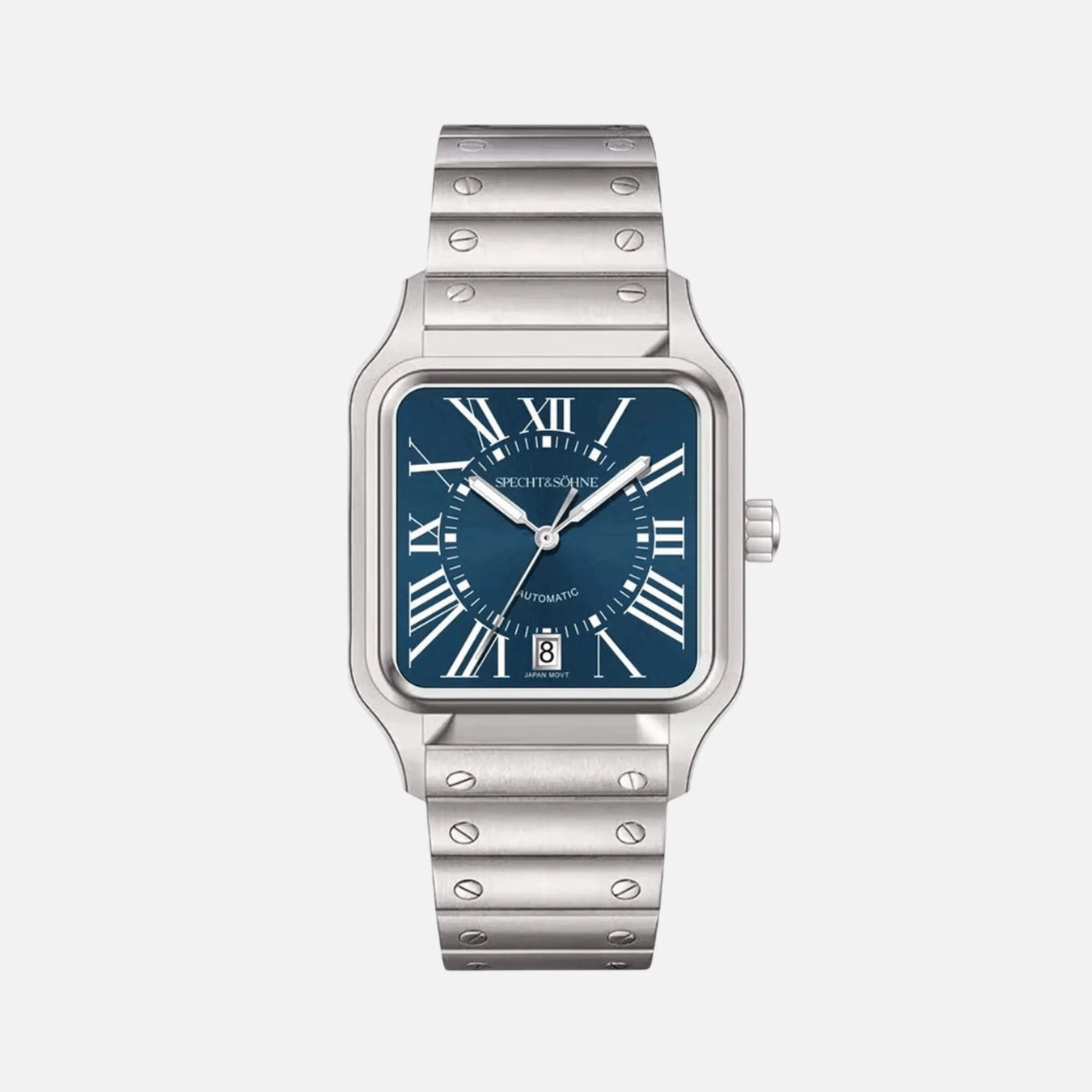Why Handmade Products Make the Best Gifts: A Guide to Thoughtful Giving
Introduction to the Value of Handmade Gifts
In an age where mass-produced goods are readily available, the selection of a handmade gift emerges as a testament to the giver’s thoughtfulness and consideration. When one delves into the world of artisanal products, it becomes clear that each piece carries with it a distinctive touch—a story that is both deeply personal and expressive.
Handmade gifts are treasures crafted by skilled artisans, often through traditional techniques passed down from generation to generation. Unlike off-the-shelf items, these are not made to order in vast quantities but are created with attention to detail and care. The craftsmanship involved imbues each product with uniqueness, ensuring that no two items are identical.
For those navigating the ‘about us’ pages of artisan collectives or scrolling through an artisans list, the appeal of handmade items is evident. These products are symbolic of a commitment to preserving cultural heritage, supporting local economies, and fostering a direct connection between the maker and the recipient.
Moreover, the journey of a handmade gift—from its conception to its completion—is rich with tales of creativity and human touch. Prospective gift-givers often find answers to their queries in the ‘FAQ’ section, learning more about the materials used, the time invested, and the processes employed in creating these exquisite items.
In a world clamoring for authenticity, choosing handmade gifts is a deliberate move towards embracing originality. Such gifts are not only cherished for their aesthetic appeal but also for the values they represent—sustainability, craftsmanship, and a celebration of human ingenuity.
The Personal Touch: How Handmade Gifts Reflect Thoughtfulness
In an age where digital convenience often supplants personal connection, handmade gifts stand out as emblems of thoughtfulness. These treasures, often made to order, carry with them the essence of the artisan’s spirit, time, and dedication. Unlike mass-produced items, which are designed for the general public, handmade products are crafted with individual personalities and preferences in mind.
Artisans pour their expertise and creativity into every handmade piece. This personal investment is not just a hallmark of their trade found in an artisans list; it’s a direct reflection of the giver’s desire to find something uniquely fitting for the recipient. It takes effort to seek out such special items, which inherently makes a statement about the giver’s regard for the receiver.
Here are key reasons how handmade gifts encapsulate thoughtfulness:
- Connection with the Creator: Handmade items often come with a story about the person who made them. An ‘about us’ section or a personal note from the creator adds an intimate dimension to the gift.
- Customization: Many handmade gifts can be personalized. Whether it’s a custom engraving or a tailor-made color choice, the opportunity to customize adds a level of intentionality to the gift.
- Quality and Uniqueness: Artisans take pride in their work, using high-quality materials and techniques. This ensures that the gift is not only durable but also stands apart from off-the-shelf products.
- Support for Craftsmanship: Choosing handmade supports small businesses and the continuation of craftsmanship, reflecting a thoughtful consideration for the community and traditional skills.
- Eco-friendliness: Many handmade products are made using sustainable practices and materials, which conveys a mindful selection process and a concern for the environment.
When givers offer handmade gifts, they do more than hand over an item; they provide a piece of a narrative - one that answers frequently asked questions (FAQ) about the product’s origin, making the gift a talking point and an expression of personal values. This level of care and connection cannot be replicated by a store-bought, mass-market item and is what makes handmade gifts a pinnacle of thoughtful giving.
Uniqueness and Originality: The One-of-a-Kind Nature of Handmade Items
Handmade products stand pinnacle to uniqueness and originality, distinguishing them from their mass-produced counterparts. Each item embodies an artisan’s personal touch, skill, and creativity, ensuring no two products are exactly alike. This inherent one-of-a-kind nature is at the core of what makes handmade products such exceptional gifts.
When choosing a handmade item, one is gifted with a story — about the artisan who crafted it, the techniques used, and the materials chosen. This connection affirms the item’s place on a carefully curated artisans list, a testament to its authenticity. For the person receiving such a gift, this narrative adds a layer of value and meaning that transcends the physical item itself.
Moreover, the option of made-to-order pieces allows a higher degree of personalization. Customers can make specific requests, tailoring their gifts to the preferences or needs of the recipient. The made-to-order process is a collaborative journey between the buyer and the maker, culminating in a gift that resonates with personalized care.
As handcrafting inherently takes time, handmade gifts reflect patience and dedication. They subliminally communicate the buyer’s willingness to invest in quality and individuality over convenience. For potential buyers, the ‘About Us’ or ‘FAQ’ sections on handmade product websites offer insights into the craft process and the stories behind each creation.
In a world where uniformity often takes precedence, the distinct charm of a handmade item cannot be overstated. It stands as a symbol of innovation and distinction, making it the perfect choice for those seeking to impart a sense of exclusivity and personality in their gift-giving.
Quality and Craftsmanship: The Difference in Handcrafted Products
When exploring the notion of handmade products, one immediately encounters a profound appreciation for quality and craftsmanship. The artisans behind these items feature prominently on any artisans list, often revered for their dedication to creating unique goods that showcase their skills. Unlike mass-produced items, handmade products are crafted with meticulous attention to detail, each stitch or brushstroke bearing the mark of the artisan’s personal touch.
These creators pride themselves on producing goods that not only tell a story but also embody superior quality that is palpable upon first use. Handmade products are made to order, which means they are produced with a specific recipient in mind, further enhancing their exclusivity and personal value. This careful, individualized approach ensures a level of quality that is difficult to replicate on a large scale.
- Durability is often higher in handcrafted items due to the artisan’s ability to select superior materials and execute time-honored techniques that do not cut corners for the sake of efficiency.
- The attention to detail means that flaws are minimized as the creator’s intimate involvement with the product allows for rigorous quality control throughout the crafting process.
- Innovativeness is a hallmark of handcrafted products. Artisans are free to experiment and incorporate unique designs and features that are often absent from their commercial counterparts.
For those seeking additional information or wanting to address specific concerns, a “Frequently Asked Questions” section or an “About Us” page on the artisan’s website offers insights into their crafting processes and the stories behind their work. By choosing a handmade gift, one is not simply purchasing a product but is investing in a piece of art that stands as a testament to the irreplaceable value of human ingenuity and craftsmanship.
Supporting Local Artisans and the Slow Movement
When considering the provenance of a gift, purchasing handmade products offers an opportunity to support local artisans. These skilled individuals often employ traditional methods that have been passed down through generations, ensuring that each item they create is infused with a story and personal touch. The slow movement, which champions a cultural shift toward slowing down life’s pace, is closely tied with the artisanal approach of creating goods.
By choosing handmade items, consumers can contribute to the following:
Sustainable Practices: Handmade gifts are frequently made from locally sourced materials, reducing the carbon footprint associated with long-distance transportation. The slow production process also tends to be more environmentally mindful, emphasizing quality over quantity.
Economic Empowerment: When you buy directly from artisans, whether it’s via a local market or through a dedicated artisans list, you’re ensuring that more of the profit goes to the creators themselves. This can help sustain their craft and contribute to the local economy.
Unique Craftsmanship: Items that are made to order bring an unmatched level of attention to detail. Artisans take pride in their work, and this shines through in the unsurpassed quality and individuality of their products.
Cultural Preservation: Handmade products often reflect the customs and heritage of the place they are made. By purchasing these items, you’re helping to keep these traditions alive and relevant.
To learn more about the artisans you’re supporting or to get specific queries answered, don’t hesitate to check the ‘about us’ or ‘faq’ sections often provided by businesses that prioritize handmade goods. These sections often give insights into the passion and stories behind the creations, adding another layer of thoughtfulness to your gift.
By gifting handmade items, not only are you offering something beautiful and distinctive, but you’re also casting a vote for a world that values the human touch, community, and sustainable living.
Customization Options: Tailoring Gifts to the Recipient
Handmade gifts offer unparalleled levels of customization, encapsulating thoughtfulness in a way that mass-produced items simply cannot. When you choose a handmade gift, you have the opportunity to tailor it specifically to your recipient’s preferences and needs, ensuring it resonates with them on a deeper level.
Firstly, when perusing an artisan’s list, you can often select from a variety of materials and colors. This allows you to consider the recipient’s style and choose something that complements it perfectly. For example, if you know they favor earth tones, a handmade ceramic vase in a warm ochre or soft green would be an ideal choice.
Moreover, many handmade items are made to order. This not only means they are fresh and unique, but also that specific features can be adjusted according to the recipient’s taste. Whether it’s adding an inscription to a piece of handcrafted jewelry or modifying the design of a hand-sewn bag, these personal touches add an invaluable layer of care and attention to your gift.
Additionally, the option to communicate directly with the creator is a standout feature. You can often find information about us or an FAQ section on a maker’s website, providing insightful guidance on how to customize your chosen item. This dialogue ensures your gift adheres to your precise specifications and personalizes the shopping experience itself.
Furthermore, for those who have unique needs or hard-to-fit sizes, handmade products can be lifesavers. Artisans take pride in their versatility, often willing to alter dimensions or create completely unique designs to accommodate their customers.
Lastly, the gift of something handmade tells a story—a narrative of craftsmanship, care, and uniqueness. When a gift is fashioned with a particular person in mind, it becomes more than an object; it becomes a testament of your relationship and the effort invested to celebrate it.
Eco-Friendly Choices: The Sustainability of Handcrafted Gifts
In an era where sustainability is paramount, the allure of handcrafted gifts extends beyond their aesthetic appeal to encompass environmental responsibility. Consumers seeking to understand the implications of their purchases are increasingly gravitating towards the ‘About Us’ pages and ‘FAQ’ sections of websites to scrutinize the eco-friendly credentials of artisans and their crafts. Opting for handcrafted gifts is a choice that represents a commitment to reducing the carbon footprint associated with mass-produced items.
The Artisans’ Commitment to Sustainability
Artisans featured on the ‘Artisans List’ often emphasize the use of locally sourced, natural materials and traditional craft techniques, which inherently have a smaller environmental impact. The creation of handmade items typically involves:
- Lower energy consumption, as handcrafting often requires minimal to no electricity compared to factory production.
- Reduced waste, since artisans can precisely measure and use materials, creating less scrap.
- Recycled and up-cycled materials that give a second life to otherwise discarded items.
Made-to-Order: A Sustainable Approach
The concept of ‘made to order’ aligns with sustainability by ensuring that products are created only when there is a demand. This approach mitigates overproduction, leading to:
- Less excess inventory that may end up as waste.
- Personalized items that are more likely cherished and kept longer by their recipients.
- A thoughtful production cycle that respects natural resources and labor.
Each handcrafted gift tells a story, not only of the artisan’s skill and creativity but also of a conscious choice to support practices that are gentle on the planet. By favoring handmade products, gift-givers participate in a culture of sustainability. They contribute to an economy that values quality over quantity and the well-being of the environment over the convenience of immediacy.
Unboxing Experience: Presentation and Packaging of Handmade Gifts
When opening a handmade gift, the unboxing experience plays a crucial role in conveying the care and attention dedicated to the item’s creation. Presentation is not an afterthought for creators who specialize in handmade products; it is an extension of their artistry. Those browsing a website’s about us or artisans list can expect this level of detail right from the packaging.
Presentation Highlights the Maker’s Touch
Each fold, embellishment, and choice of wrapping material speaks volumes about the nature of the gift inside. Handmade gifts are often swathed in eco-friendly materials that complement the item’s unique attributes, providing a hint of the personal touch that went into its making. This aligns with the ethos of handcrafted items – prioritizing sustainability.
Packaging Crafted with Intention
Packaging communicates the narrative of the handcrafted item. Whether it’s a made-to-order piece or selected from a collection of unique creations, artisans ensure that the external experience mirrors the quality of the content. From stamped logos to handwritten notes, the packaging often tells a story of its own, deepening the connection between the gift and the receiver.
FAQ Card: An Informative Addition
Included within the package might be an FAQ card that provides insight into the care, materials, and backstory of the handmade piece. These cards serve as a bridge between the customer and creator, allowing the artisan to share their journey, emphasizing the authenticity and uniqueness of each item.
The Reveal: Sensory Engagement
Upon unboxing a handmade gift, one is often greeted with a feast for the senses. Textures, colors, and sometimes even scents are thoughtfully curated to make the reveal a memorable moment. A well-crafted presentation ensures that the experience of discovering the gift is just as remarkable as the handmade gift itself.
The thoughtful consideration placed into the packaging and presentation of handmade gifts underscores the unique value they hold. An artists’ attention to these details makes the recipient feel genuinely special, turning the simple act of giving into a cherished memory.
Handmade for All Occasions: Finding the Right Gift for Any Event
Gifting is not just about the exchange of objects; it’s about conveying a sentiment, creating a connection, and celebrating life’s special moments. Handmade products, with their intrinsic uniqueness and personal touch, resonate deeply with the spirit of giving. They hold the essence of thoughtfulness that is universally appreciated, making them perfect for any occasion.
When exploring handmade gifts, it’s essential to consider the individuality of both the giver and the receiver, as well as the event in question. If the occasion calls for romance, such as Valentine’s Day or an anniversary, handcrafted jewelry or a bespoke piece of art can speak volumes. For birthdays and graduations, personalized gifts that reflect the recipient’s interests or achievements, like a made-to-order bookbinding or a custom-engraved wooden keepsake, are both poignant and memorable.
Festive holidays offer the perfect opportunity to turn to artisans for something truly special. A one-of-a-kind ornament or a set of hand-painted tableware can become a treasured part of family traditions. Moreover, if the event is a wedding or a housewarming, consider presenting a piece that brings warmth to the home, such as a handwoven throw or an artisanal candle set.
Business events and formal gatherings also benefit from the thoughtful nature of handmade gifts. Items like leather-bound notebooks or handmade pen sets offer utility as well as a touch of personalized elegance. The ‘About Us’ stories of these products often serve as conversation-starters, and a well-curated ‘artisans list’ can help you choose the perfect craftsperson for your corporate gifting needs.
Not sure where to begin? The FAQ section on a marketplace for handmade products can help you navigate any questions about care, customization, and ordering. Whatever the event, remember that a handmade gift is not just a physical item—it is a testament to caring, an artifact of intention, and ultimately, a celebration of the irreplaceable human touch.
The Emotional Impact of Receiving a Handmade Gift
When one delves into the ‘About Us’ section of a marketplace showcasing handmade products, the artisans’ list reads as a roll call of dedicated craftspeople who pour their hearts and souls into their creations. This dedication resonates with recipients of handmade gifts. Unlike mass-produced items, a handmade gift carries with it an emotional charge that can significantly enhance the connection between the giver and the receiver.
Recipients often report feeling deeply cherished upon receiving a gift that has been made to order. They sense the exclusive time, effort, and creativity invested into the product, culminating in a profound appreciation. This emotional response is not just about the item itself but also the narrative that accompanies it—a narrative of personal commitment, care, and attention that is absent in off-the-shelf products.
Moreover, the receiver can often interact with the creation process via FAQs, requests for customization, or simply by learning about the item’s unique journey. Such interactions add layers of personal significance to the gift, making it not just a token of affection but also a tale of artistic endeavor and individualistic expression.
When a recipient acknowledges the singular nature of a handmade present, along with the story of its origin, the gift goes beyond its physical form. It becomes a medium of emotional exchange, encapsulating feelings of love, respect, and a deep sense of understanding. It is in this emotional arena that handmade gifts truly shine, delivering an experience that is as memorable and impactful as the gift itself.
Cost Versus Value: Why Handmade Gifts Are Worth the Investment
When evaluating purchases, the initial cost is often a primary concern. However, the unique value of handmade gifts extends far beyond their price tags. These artisan-crafted treasures carry with them elements of exclusivity, personalization, and quality that mass-produced items cannot emulate.
Handmade gifts, often listed on ‘artisans list’ pages or ‘about us’ sections of specialty websites, boast a narrative of craftsmanship and tradition. Each item is typically ‘made to order,’ ensuring that the recipient receives a product tailored specifically for them, a distinct difference from the impersonal nature of off-the-shelf gifts.
The investment in handmade products also signals a commitment to supporting local and international craftspeople, whose expertise is honed over years, sometimes generations. Every purchase directly contributes to sustaining livelihoods and preserving artisanal skills that are in danger of being eclipsed by industrial manufacturing.
Furthermore, the durability and timeless design of handmade items mean they are likely to become keepsakes, possibly even family heirlooms, rather than being discarded after a short period of use. The initial cost is mitigated by the longevity of use and the emotional significance that does not diminish over time.
The ‘FAQ’ sections on artisanal websites often address concerns about costs by highlighting the bespoke nature of the work involved. Buyers are reminded that they are not just purchasing a product, but a piece of art, a story of dedication and passion, and a personalized experience that is irreplaceable.
In understanding the true value of handmade gifts, one can appreciate that their worth is measured in more than just monetary terms. It’s an investment in quality, heritage, and a deeper, more connected sense of giving.
Navigating Challenges: Tips for Purchasing Handmade Gifts Online
When buying handmade gifts online, patrons encounter unique hurdles not present in traditional shopping. Thoughtful navigation of these challenges ensures the acquisition of exceptional, well-crafted items.
Research Artisans: Before finalizing a purchase, delve into the ‘about us’ section of the online storefront. Familiarize yourself with the artisans list, their craftsmanship standards, materials used, and any sustainability practices they adhere to. Understanding an artisan’s background and technique adds meaningful context to the gift.
Examine Lead Times: Handmade items, often ‘made to order,’ require significant time for creation. Acknowledge the projected crafting period and allow ample time for production and shipping. This foresight prevents last-minute scrambles and ensures on-time delivery for special occasions.
Read Reviews and FAQs: Leverage feedback from previous buyers to gauge quality and customer satisfaction. The ‘FAQ’ section can shed light on common concerns, such as return policies or care instructions, making it easier to set realistic expectations.
Communication is Key: Engage directly with artisans when questions arise. A personalized inquiry can clarify customization options, potential for expedited creation, or suitability of a product for the intended recipient.
Understand Variability: Accept the charm of handmade items, which may include slight variations in color, size, or pattern. These characteristics underscore the uniqueness of the gift and the personal touch of its creator.
Navigating the purchasing process for handmade gifts online demands patience, research, and clear communication. By following these tips, buyers can successfully acquire treasured items that reflect craftsmanship, care, and consideration, embodying the spirit of thoughtful giving.
Conclusion: Fostering Connections Through Handcrafted Giving
In the age of mass production, the allure of handmade products lies in their unique ability to foster connections between giver and receiver. Handcrafted gifts resonate with a depth of sentiment that off-the-shelf items seldom match. Each piece, suffused with the artisan’s skill and passion, delivers more than just aesthetic pleasure; it carries a narrative of meticulous craftsmanship and dedication.
The act of gifting something made to order or chosen from an artisan’s list is an intimate affair. It shows mindfulness and consideration for the recipient’s tastes and preferences, making the experience personal. The FAQs about handmade products often reveal the stories behind the creations, adding depth and value to the gift. These narratives allow the recipient to connect not just with the item, but with its creator’s journey, thereby knitting a more profound bond.
When opting for handcrafted items, patrons don’t just buy a gift; they support a community of artisans who pour their souls into their work. This aspect is a vital component of an “About Us” section that evokes a sense of solidarity and shared values. It underlines the commitment to preserving traditional techniques and promoting sustainable livelihoods, something that’s becoming increasingly treasured in a conscientious society.
In summary, handmade products are not merely objects; they are embodiments of love, tradition, and connection. Gifting these treasures fosters a unique bond, a shared appreciation for the time-honored craft, and a celebration of human ingenuity and creativity. By choosing handcrafted, made-to-order gifts, one not only delights the senses but also weaves a tapestry of human connection that stands the test of time.






